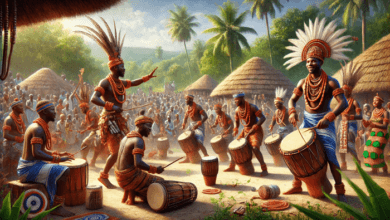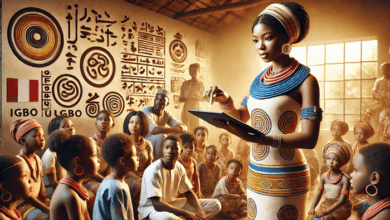The People of Nupe
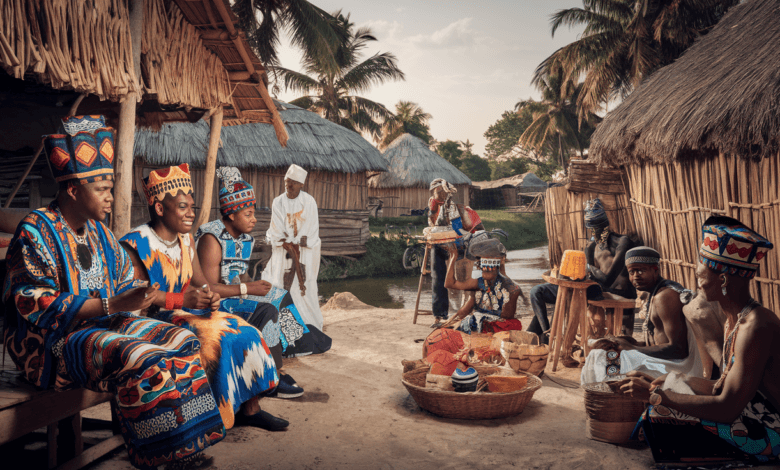
The Nupe. One of the ethnic groups in Nigeria, are a people in their own right. They may also be called “Nupeci,” “Nufawa,” “Abawa,” “Tapa” and “Gana-gana,” while they refer to themselves as Nupensizi.
Below Kainji Reservoir (Niger and Kebbi states), as well as before the confluence of Benue River (Kogi state), they are present along the lower reaches of Kaduna River and on Niger River. As of 2012 it was estimated that about 1.4 million people lived there.Languages of the Nupe in Different Areas The Beni, Ebe, Bataci, Ebagi, Dibo, Kyedye, Gbedegi (a group collectively recognized as of Yoruba descent) and Nupezam, and other ethnic subgroups are varieties of the Nupe which come under their subethnic classes.
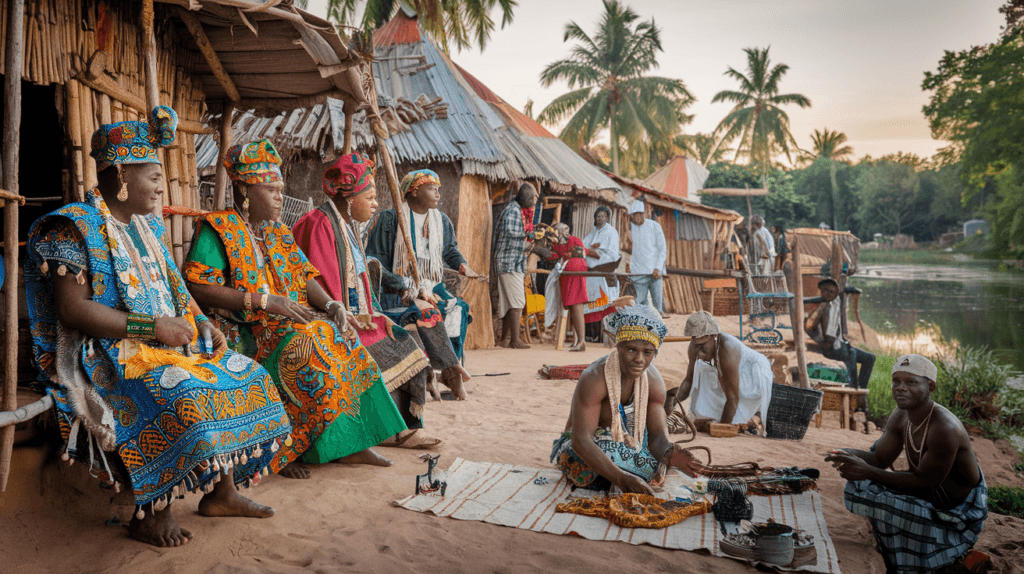
The languages they speak are called Nupe; they are related remotely to Yoruba and Igbo languages in the languages of Nupoid Branch of Benu Nupoid Branch.There are a number of differences in the actual use of these forms. The Gwari, the Ebira, the Dibo and other groups are examples of closely related peoples.
The script used for the Nupe language is similar to that of the Latin alphabet
Some of the inhabitants are Christians, while the majority are Sunni Muslims who worship both in the African tradition and in a blending of Animism-Islam called Afro-Islam.
Nupe, found in the Nigerian state of Niger, is an important country.The earliest is of the known history of Nupe was ranked as Kyabe.
Chiefs of the largest settlements is today each called Etsu Nupe (King of Nupe) and is based in Bida, the federal capital of Nigeria. Approximately in the middle of the 18th century, the Nupe elite began to receive Islam from Kanurior Hausa and Fulani peoples.This religion (Islam) was then passed on to some Edo-speaking peoples such as Ivbiosakon and Etsako, and also to certain elements of the Yoruba people.
Starting to take off in the second half of 18th century.When the British came in Year 1878, they had to repress the Nupe. Field Marshal (1860-1900) was successful in bringing the Nupe under his control in Years 1818-1819 this dendo was the grandson of Usman Dan Fodio s brother Sultan Bello he rode hard into Ilorin while army after army formed up against him; but scarcely had they mustered before dissolving so most people concluded that such a despot must certainly perish again within time to come.
By his son (known as Masaba ) in the middle of the 19th century the Bida Emirate was founded. The Bida Emirate was taken over by the British in Year 1897.
In 1968, it was a town on Upper Niger in Nigeria, which is far from civilization and located at an elevation of 600 meters. The traditional culture of the people Nupe characterizes this whole part of West Africa now, for it is an area without great outside influence. It follows that their main traditional activities are cutting (or manual burn) farming (previously: millet, sorghum, yams, peanuts, rice, Japanese yams, Chinese sorghum, cotton; now: any food at all) and livestock farming (mainly small ruminants). And fishing, especially on the Bataci flood plain (locally, Bata l`).
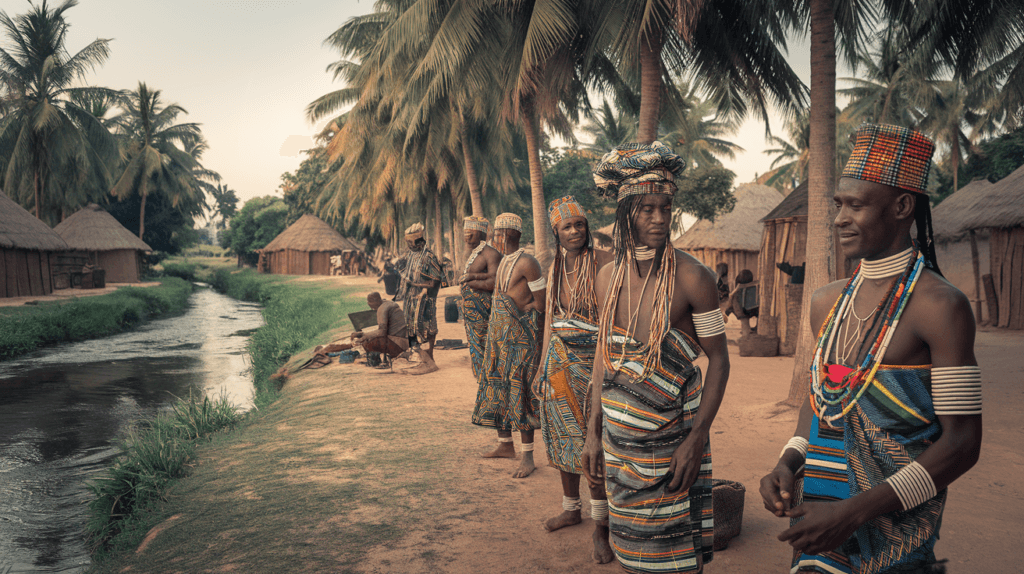
Especially on the River Kaduna, the Nupe trade greatly expanded itself, and so their ancestors accumulated large amounts of private property. In the lead-up to the invasion of the Komootie Trench in 1896, it was a city trading pigs and cowries. Before the colonial era, the Nupe were heavily involved in trade through the trans-Saharan caravans.
Here, one can pick up many handicrafts in production, weaving, dyeing cloth, making ceramics, leather work, casting bronze or wood /metal sculpture-making and so on.
At the same time, the Nupe also have a great number of people working for pay jobs especially in such cities as Los Angeles, New York, Chicago and Washington DC.
The settlements
Whether the settlements are dispersed or compact, they resemble urban centres (Ezi). Traditional Dhak — or neighborhoods in Nupe–consists of one or more households packed tight together vertically. In regard to their settlements, theirs can be classified into the following two types.
Traditional homes are spherical in shape, with walls of mud and a roof made straw or grass in the form of conical hats Turbans, pants, and overcoats of the Bubu style-which are large white shirts–form essential components in the man’s wardrobe.
Brought to life by tribal marks as symbols of lineage, people answer to one another’s names in kinship ties. In addition to the widespread practices of polygyny and bridge price, marriage is a patrilocal institution. Extended family communities a—so-called Emi–and bilateral kinship groups–also called Dengi–constitute the basic forms of social organization.
Both secular and spiritual power is transmitted through a paternal line. In the kinship system, bibhen language is used: siblings are sub-divided according to their relative ages. The institution of the Bida Emirate as well as the authority of the Etsu Nupe, in addition to Secret Societies that hold ceremonial masked dances and which are responsible for telling folklore tradition telling Music too and plays and tales are the instruments Of government among the Nupe Allied to these are hands. Rattles, striking Instruments the neck, instruments beaten on table-string instruments


